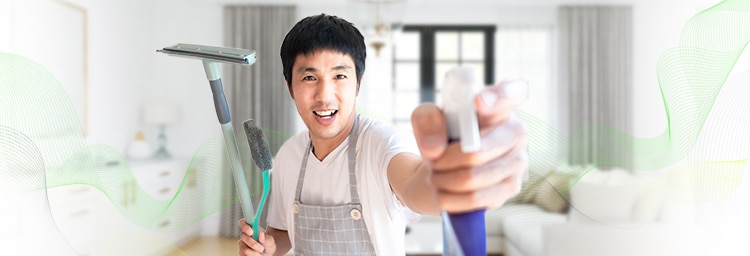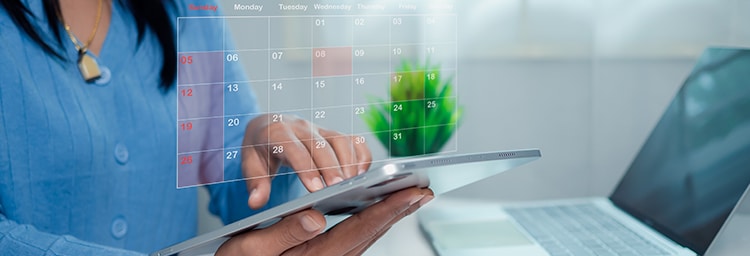Introduction – From Family Homes to Independent Living
In the Philippines, it’s common for young adults to live with their parents until they get married. However, more and more single Filipino professionals are choosing to live on their own today.
For many, living alone means freedom, personal growth, and independence.
This change shows how modern Filipinos are starting to value building their own lives, even before marriage (if they even wish to go down that path, but that’s for another day).
If you’re thinking about making the move to your first apartment but want to make sure you’re ready, you’ve come to the right place.
To help you make an informed decision, let’s explore the factors that will determine your readiness and how to prepare yourself before moving out if you decide to follow through.
Mental and Emotional Readiness
Living on your own isn’t just about paying rent or doing chores—it also requires being mentally and emotionally prepared.
Here are some signs that you’re ready:
1. You Crave Independence and Privacy
One of the clearest signs you’re ready to live alone is the desire for independence.
If you often find yourself wishing for your own space where you can make decisions without needing anyone’s approval, that’s a good indicator.
Wanting privacy and control over your time, environment, and daily routine means you’re starting to value autonomy—an essential part of solo living.
2. You Can Manage Stress Well and Make Your Own Decisions
Living independently will put you in a lot of unexpected situations—whether it’s a power outage, a leaky faucet, or just a tough day at work with no one around to talk to.
If you’ve developed healthy ways to handle stress and can stay calm under pressure, that’s a strong sign you’re emotionally ready.
Independent living also means making daily choices on your own, from budgeting and grocery shopping to setting routines and boundaries.
If you feel confident making decisions without second-guessing yourself or needing constant advice, you’re more than ready to take charge of your life and space.
Financial Capability
Before moving out, it’s important to ask yourself: Can I afford to live on my own?
Financial stability and independence is a non-negotiable part of solo living.
Here’s what you need to consider to make sure you’re financially ready:
3. You Have a Steady Income and Know How to Budget
Before living independently, it’s important to have a regular income that can cover your monthly needs—like rent, food, bills, and transportation.
For example, if you’re earning consistently from virtual assistant jobs, that’s a good sign you might be ready.
Many Filipino professionals now work online and earn a stable income through virtual assistant roles, which offer both flexibility and financial independence.
It’s also helpful if you already know how to budget.
This means planning how much you earn, how much you spend, and how much you can save.
If you’re used to handling your money wisely and paying bills on time, you’re on the right track to living independently.
4. You’re Prepared for Emergencies
Living independently means you won’t always have someone to rely on when unexpected things happen—like medical issues, job loss, or home repairs. That’s why having an emergency fund is so important.
If you’ve saved at least 3 to 6 months’ worth of your basic expenses, you’re in a better position to handle surprises without going into debt or making rash decisions like accepting a low-balling job offer just to stay afloat.
Furthermore, an emergency fund gives you peace of mind and a safety net while you get used to living on your own.
You can also check this guide on how to build your emergency fund, even as a freelancer.
5. You Make Enough to Cover Your Daily Expenses (and Some Emergencies)
When you live alone, you’ll be in charge of paying for rent, electricity, internet, food, and more.
This means you need to pay bills on time and can handle unexpected costs should they arise.
This kind of financial responsibility is a major part of adulting—and mastering it means you’re more prepared for independent living than you might think.
Handling Daily Responsibilities
Living independently means taking care of everything yourself.
There’s no one to remind you or do things for you, so it’s important to manage responsibilities and stay on top of your daily tasks, such as:
6. You Have A System for House Chores and Errands
Living independently isn’t just about knowing how to do chores—it’s about actually doing them regularly.
If you’ve developed routines for cleaning, cooking, and errands, you’re better equipped to keep things running smoothly on your own.
7. You Can Stick To Schedules
Living independently means you’ll be responsible for your own tasks and appointments.
If you’re already skilled at meeting deadlines, keeping appointments, and handling multiple tasks at once, you’re ready to manage your own space and schedule.
Practical Knowledge for Moving Out
Being emotionally and financially ready is just part of the picture—there are also everyday skills and knowledge you’ll need when living alone:
8. You’ve Familiarized Yourself With Rental Agreements and Housing Options
Before moving out, it’s important to know what you’re signing up for—literally.
Rental agreements include rules about rent, deposits, maintenance, and your rights as a tenant.
For example, landlords typically ask for one month’s advance and two months’ deposit.
Contracts may also include rules about what you can and can’t do inside the unit—like painting the walls, drilling holes, or bringing in large furniture or appliances. Some units may even have restrictions on pets or visitors.
Reading the terms and comparing options based on location, safety, and budget is all part of smart rent planning.
9. You Have a List of Essential Home Items
Moving out means more than just finding a place—you also need the basics to live comfortably.
If you’ve already started buying or listing down what you’ll need (like kitchen tools, cleaning supplies, beddings, and appliances), that’s a great start for your future home setup.
In the Philippines, many rentals come semi-furnished or bare, so it’s up to you to bring in essentials like an electric fan, rice cooker, or water dispenser.
Starting early helps you spread out the costs and ensures you’re not overwhelmed once you move in.
Handling Home Emergencies
When you live alone, you’ll have to deal with unexpected problems that can pop up at any time.
That’s why it’s important to be prepared:
10. You’ve Learned How to Do Basic Fixes and Know When to Call for Help
Living alone doesn’t mean you have to fix everything by yourself—but it’s helpful to know some basics:
- Change a lightbulb – Make sure you know the right size and type.
- Unclog a drain – A plunger or simple drain cleaner can save you time.
- Stop a leaking faucet – Turn off the water and tighten loose parts.
- Reset a circuit breaker – Flip the switch if the power goes out.
- Patch small wall holes – Useful for tiny nail holes or scratches.
- Tighten loose screws – Helps keep furniture and fixtures sturdy.
- Turn off the main water valve – Important in case of major leaks.
If you can handle small problems like the ones mentioned above, you’ll feel more confident on your own.
However, it’s just as important to know when it’s time to call a plumber, electrician, or maintenance for bigger problems best left to professionals.
11. You Know How to Maintain a Safe and Functional Living Space
Living alone means keeping your home safe, clean, and in good shape.
If you can handle regular cleaning, fix small issues, and keep safety items like a flashlight, first-aid kit, or a fire extinguisher, you’re on the right track.
Here’s a quick checklist to help you keep your space safe and functional:
- Lock doors and windows, especially at night.
- Check for leaks or damage in gas tanks, stoves, and outlets.
- Test smoke alarms and replace batteries.
- Have a flashlight, first-aid kit, and fire extinguisher.
- Clean regularly to prevent pests and mold, and to keep the space fresh.
- Make sure lights, faucets, and appliances work properly.
- Keep your place tidy.
- Have emergency numbers (landlord, maintenance, etc.) on hand.
By staying prepared for everyday tasks, you’ll feel more confident in managing your space and ready to handle any challenges that come your way.
A Plan for the Transition
Moving out on your own is an exciting step, but it’s important to plan ahead to make the process easier. Here’s a simple guide to help you transition smoothly:
Don’t Rush—Set Up a Timeline
Moving out takes time, and it’s important to avoid rushing through the process.
Setting up a timeline allows you to plan each step carefully and gives you enough time to prepare:
- Set a Moving Date: Choose a date that gives you enough time to find a place, pack, and prepare.
- Break Down Tasks: Divide tasks into smaller steps like finding housing, budgeting, buying essentials, and packing.
- Give Yourself Time to Adjust: Don’t rush—give yourself time to settle in and get comfortable with your new space and routine.
Moving out can feel like a big task, but a clear timeline with concrete and actionable steps can make it more manageable.
You already have a day-to-day solo routine in mind.
Planning your daily routine shows you’re not just excited to move out—you’re getting ready to handle life on your own.
Simple habits like setting meal times, cleaning schedules, and relaxing after work can make living alone easier (and more enjoyable)!.
FAQ – Moving Out For The First Time?
If you’re not sure what to do or where to start, here are some straightforward answers to common questions to help you get ready.
What age is ideal to move out in the Philippines?
In the Philippines, it’s common for young adults to stay with their parents until their mid-20s or even 30s because of tight family bonds.
Still, there’s no “perfect” age for moving out—it depends on your financial situation, emotional strength, and mental readiness.
Moving out isn’t just about earning enough; it’s about developing self-reliance and being prepared for the everyday responsibilities of living alone.
You need to feel confident, stable, and capable of managing life on your own first.
What are the common mistakes to avoid when moving out for the first time?
Common mistakes include rushing the move, not saving enough beforehand, underestimating costs, or ignoring the details in rental agreements.
Another mistake is neglecting everyday life skills—like managing routines, doing chores, or budgeting—which are crucial for independent living.
Moving out is a big step toward personal growth, so it’s important to plan ahead and build good habits early. Follow the tips above to make the transition smoother!
How much money do I need before moving out?
The amount you need depends on your living expenses and lifestyle. Also, think about how much rent you can comfortably afford, along with your other daily costs.
As a general rule, it’s good to have at least 3 to 6 months’ worth of living expenses saved up.
This includes rent, utilities, food, and any emergency costs. Having extra savings will also help you feel more secure as you adjust to living on your own.
Conclusion – Your First Step Towards Freedom Starts With Readiness
Moving out for the first time is an exciting step toward independence, but being truly ready involves more than just packing your bags.
It’s about mental, emotional, financial, and practical preparation.
Seeing the signs that you’re ready (like the ones above) means you’re better equipped for living independently.
So if you’re planning to live on your own, finding flexible work can be the key to supporting your new lifestyle.
Remote Staff offers online opportunities such as Virtual Team Coordinator, Online Personal Assistant, Digital Executive Assistant, and Remote Administrative Support roles—giving you the freedom to earn a stable income while working from anywhere.
Register today!









